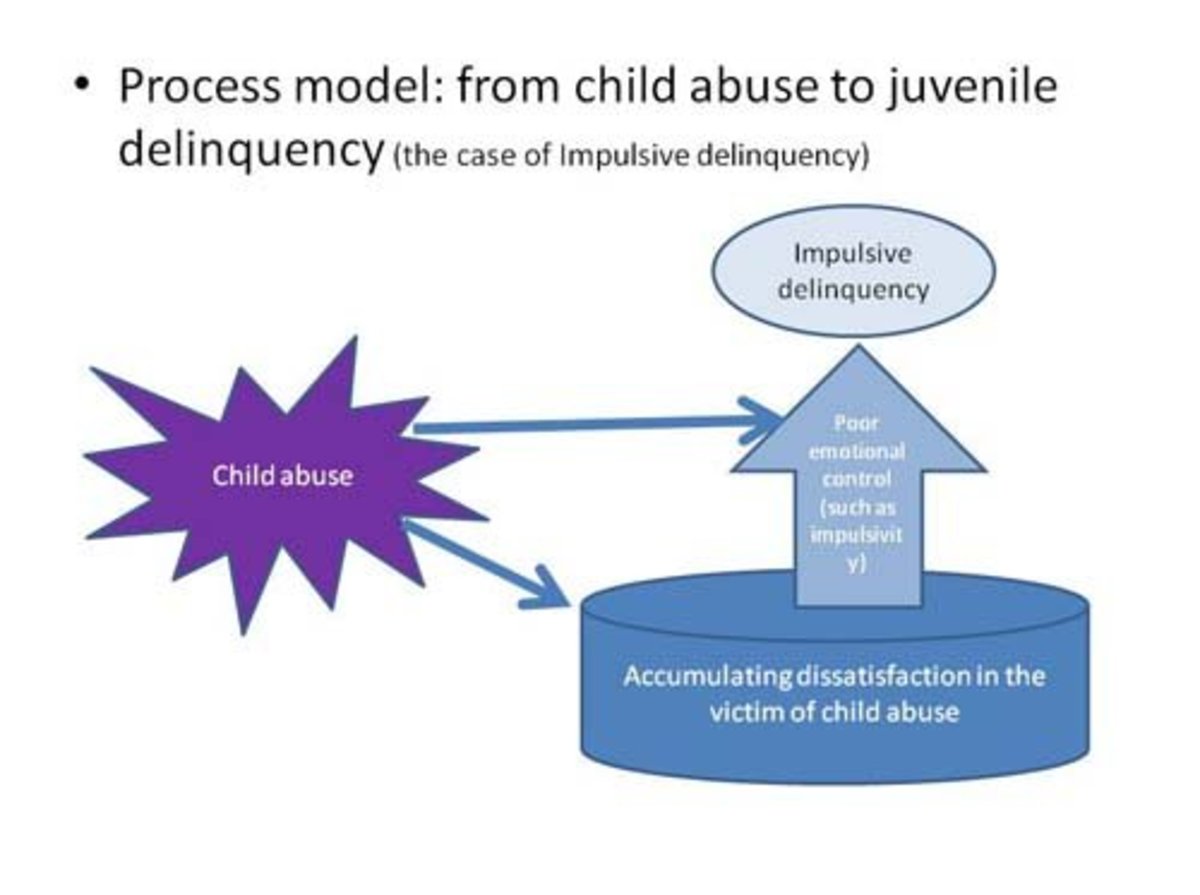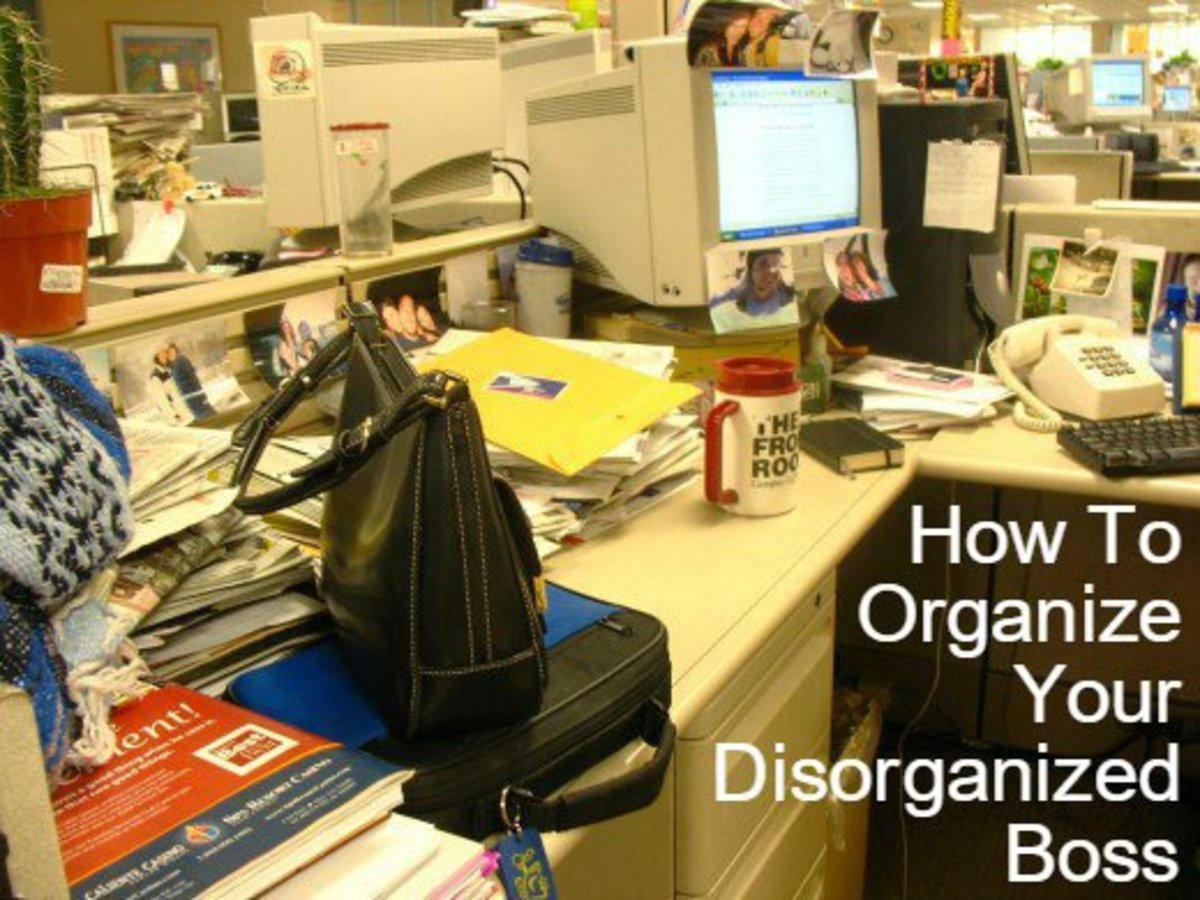How To Help Your Juvenile Delinquent
©copyright ALL RIGHTS RESERVED 2012
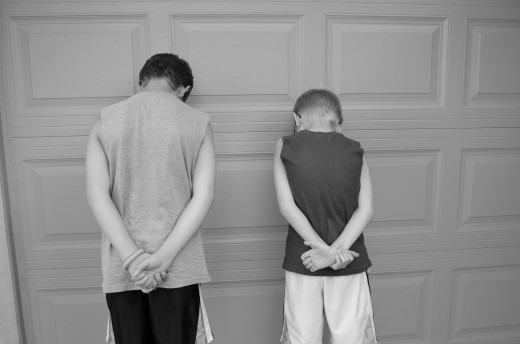
Define the Problems
Before you can find a solution it's important that you determine whether or not you have a problem. Perhaps your child or the youth in question has been adjudicated in a court of law in which case there are certain parameters you must work within.
If the youth in question is displaying behaviors which concern you. See Characteristics of a Juvenile Delinquent. There are many things you can do which will help you understand them better and perhaps dissuade them from behaviors of delinquency and potential criminality.
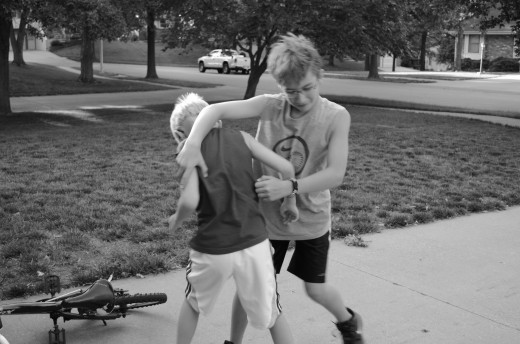
Signs, Signals and Solutions
- Look closely at your child's behaviors and habits for any signs of drug or alcohol use or abuse. Never be the parent who says, "My child would never do that." Signs of drug use and abuse: see American Council For Drug Education. If your child is coming home and obviously under the influence, don't ignore it. Get help. Rehabilitation is the first step to success.
- Children need a support system. It doesn't have to be the parents although that connection is typically the one children believe is the most important bond. Many kids have thrived successfully with grandparents, aunts and uncles, brothers and sisters or other extended family members. Problems arise when kids don't have family support systems so they find alternative methods of acceptance - typically gang involvement, which almost always leads to criminal activity.
- Set rules and boundaries and maintain them. Follow through is critical from the moment you decide to make changes. You cannot relax the boundaries for any reason. You must maintain the set limitations and consequences. Children are masters at finding weak spots because it's natural to test boundaries. If a child finds an open door, that door will likely become a revolving door.
- Work together with a group. Ask a teacher, ask a counselor, ask a church member, ask a police officer, ask a youth outreach worker and come together as a strong united front on behalf of the child. A team is always stronger than a single and the youth will feel as though they have an army behind them as opposed to feeling alone. When kids understand that they have a support system, results are almost always significantly better.
- Work closely with the school to ensure that the youth is involved in school, getting and staying focused and understands the importance of education. The team you assembled can also help you impress the importance of education. Many schools have before and after school programs directed at kids who need additional services.
Courtesy of YOU TUBE
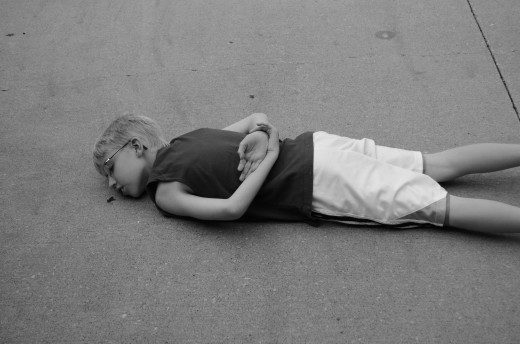
- Get your child involved in activities. The more outside activities they are involved in, the less time they have to be involved in delinquent activities.
- Sports - football, baseball, basketball, volleyball, track & field, swimming, diving, gymnastics
- Church, youth group
- Dance
- Arts, painting, sculpting, drawing, photography,
- Taekwondo, Karate, Kung Fu, Jui-Jitsu, Aikido,
- Singing
- Acting
- Youth outreach
- Volunteer groups
- YMCA
Be Involved and Be Realistic
- It's important that you are always involved in your child's life. This can be difficult in situations of divorce and when one or both parents work full time. However, it's critical that you ask questions, know their whereabouts, set standards and follow through. While experts agree that early intervention is always better, it's never too late to get involved.
- If your life is an environment that is unsuitable or unstable for a child who needs stability and calm, it may be necessary to reorganize and change your lifestyle to suit the needs of your child. Violence and unrest are extremely disruptive to the well being a children.
- Ask questions about their life and don't take "I don't know" for an answer. Find out about what's going on, become interested in them. Know who their friends are, know where they live, where they're going and set curfews that you will enforce. If you know that your child has crawled out of his or her bedroom window, take measures to stop that behavior such as check in on him more often or at the extreme, applying locks from the outside.
- When your child gets into trouble, make the punishment fit the crime. When you punish your child, it should be appropriate to what they've done as opposed to grounding them for life.
After Arrest
- If your child is taken into custody, you may need to hire an attorney. Find an attorney that is reputable at keeping juveniles in the juvenile system or who has been successful at using the reverse waiver laws. Juvenile Law Attorneys.
- Remain in constant communication with corrections officers, probation officers, community corrections officers as well as any public officials who are involved in your child's case. It's important that your child is involved too. Always be amicable and remember you are working collectively on behalf of your child.
- It may be necessary to find a counselor for your child. In some instances, there are problems which cannot be solved without intervention. Additionally, your child's case may include as part of their disposition, that they attend counseling. If so, find a counselor that will best suit their needs.





